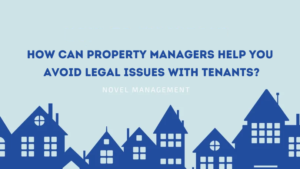Finding a property or a tenant might very well be the most difficult part of a property manager’s job. The process is time-consuming, involves legal documentation, and the risks are high. When a manager finds the ‘right tenant or property,’ they let out a sigh of relief.
However, a seemingly perfect record as a tenant or an outwardly well-maintained property does not mean you can sit back and relax. In this article, we discuss the importance of property inspections and how often you should conduct a property inspection.
Why Are Regular Property Inspections Important?
Regular inspections go a long way in safeguarding your investment and guaranteeing maximum returns in the long run. Regular inspections include checking everything in the house to ensure they are all in working condition, including the following:
- electrical wiring
- plumbing
- gutters
- roof for leakages
- mold and other safety hazards
- ventilation
- heating and air conditioning
- grounds, ceilings
- walls
- floors
- windows and doors
Regular detailed inspection can have the following benefits.
Document the Property’s Condition
When making a purchase decision, a thorough property inspection is a must. It will help you determine whether the property is worth the asking price or not. If you skip an inspection, you may end up paying for a property that requires a ton of maintenance work, which substantially raises its cost and becomes a financial burden on the investor.
Once you’ve purchased it, you need to keep track of its condition through detailed documentation. Just as documenting regular service sessions for your car can boost its value. It shows a property has been well cared for and will attract more tenants.
Eases Insurance Renewals
Many insurance companies require you present inspection records for insurance renewal. Failure to conduct inspections within the required time frame can result in loss of coverage, which is a significant hit for the owner. It can also negatively impact the tenant retention rate, which reduces the return on investment.
Avoid Maintenance Delays
As a manager, you may be trying your best to ensure you cater to all maintenance and repair tasks as soon as possible. However, it is highly likely that you may miss out on some as they go unnoticed in surface-level inspections. Neglected maintenance requirements often turn into bigger problems that cost quite a bit of money to repair.
With regular inspections, you can avoid those and ensure you fulfill your duty as manager by providing a safe and inhabitable property to the tenants, and ensuring that the owner does not incur unnecessary costs.
How Often Should You Conduct a Property Inspection?
Annual inspections are absolutely necessary for your insurance as well as for property maintenance. However, if you have a multifamily or single-family rental house, then an inspection before a tenant moves and one when they move out is essential. It helps account for all unreported damages so you can ask for compensation if need be.
For rental properties, you can also opt for a bi-annual inspection. It is safer and ensures the tenant is keeping the property in ideal condition.
Final Word!
Property inspections are essential to protect the owner’s rights and ensuring they get maximum returns on their investment. Property managers go out of their way to maintain a property in ideal conditions, and thus, they place great emphasis on inspections, which is ideal.
Here we have highlighted the importance of property inspections and their frequency. As an owner, you don’t have to worry about the hassle of getting one done if you have a competent property manager.




